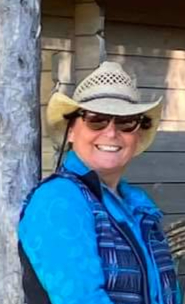Remembrance Day
- Doreen Flewell Klatt

- Nov 17, 2025
- 4 min read
My Dad talked very little about World War 2. From the few stories my Dad told, and knowing him for 50 years and from the details we know of World War 2 (Dad’s paybook, Wikipedia, google), I pieced together his story.
It was 1942, and Ray had made the decision to travel from his family farm near Kitscoty, Alberta to the closest recruitment office and enlist in the army. He had read in the newspaper and heard all the chatter in town about how the enemy forces were advancing in Europe. The news grew grimmer each day, and there was a sense of urgency to assist. Posters at the post office urged young men to serve King and country, and nearly every family in the district had felt the war’s long reach in one way or another. Some of Ray’s friends had already left for training camp. Some wrote letters home and others did not write at all, and their absence hung heavy over the dinner tables of their families.
The day he left for the train to the recruitment office in Saskatoon, Sk., Ray packed a small canvas bag and said his good-byes to his parents. As was his nature, Ray’s mind was set on a job that needed to be done. On July 15, 1942, at the enlistment office, Ray passed the medical examination, then solemnly recited the oath, and became Private Ray Flewell. He rode the train to Regina where his training began. “Regina Rifles” training was two months of rigorous preparation where the rhythm of drills and the camaraderie of fellow recruits forged new bonds. An additional month of Advanced Light Anti-Aircraft training and then he was back on the train eastward to Dartmouth, Nova Scotia, for specialized Heavy Artillery training, mastering the machinery that would support infantry on distant battlefields.
In 1943, Ray and fellow soldiers boarded a ship bound for England. 15 days was the average length of trip from Halifax to the shores of England, and it entailed more drills, maintenance and preparing for combat. Upon arrival, he was moved with his Unit to a training area and barracks. Additional rigorous training involved long marches through muddy countryside, endless drills, and learning to adapt to a new environment. Upon completion, he was assigned to the Princess Patricia’s Canadian Light Infantry which was part of the 2nd Infantry Brigade, 1st Canadian Infantry Division. He was given a uniform and rail pass. There were new challenges as they moved into France. Advancing through the countryside, Ray and his comrades relied on each other for survival. The trenches offered a measure of protection, yet they were also places of constant tension, where the threat of enemy fire was ever-present. One morning, as the men prepared to move out, a soldier Ray closely served with was killed by a sudden burst of enemy fire while standing right beside him. The shock of loss was a sharp contrast to the numbness that often accompanied the daily grind of war. In the crowded trenches, grief was a private burden. Soldiers found comfort in small acts; sharing a cigarette, offering a word. Ray kept moving forward, driven by duty which fostered courage. He would remember his fallen friend.
Another time, Ray’s platoon was advancing through an area and met enemy fire. An enemy sniper’s bullet hit the commanding officer. Recognizing the immediate danger and the vulnerability of his platoon, Ray assumed command without hesitation. He quickly assessed the situation and issued clear instructions to his fellow soldiers. The platoon navigated through the hazardous terrain, under effective cover to avoid further enemy fire. For this act, Ray was promoted to Corporal.
The infantry soldiers crossed numerous canals and ditches, often moving through cold waist-deep water. The nights were quiet, only the muffled sounds of boots slogging through mud and water breaking the silence. Every shadow could conceal danger.
In 1944 Ray’s Conversion training sent him to the front lines of the war. Ray’s platoon witnessed the bombing of Bonn, Germany. They saw fires raging and the night sky illuminated. There was force and frequency in the explosions. His description of the event was “The bombers blew the “hell” right out of it.” (“Hell” clearly meant Nazi Germany aggression!). Nazi leadership was breaking down; they had lost control and any trust of their people.
As the infantry pressed forward into Germany during the final stages of the Second World War, their mission was to secure every village and hamlet to ensure the safety of the advancing Allied forces. They moved cautiously through unfamiliar streets, checking every building, always alert to the possibility of booby traps and other dangers. The discovery of a well-stocked cellar offered a delightful, if fleeting, return to normalcy, especially liquor. Between towns out in the countryside, they would sometimes hop on the tanks that were advancing and hitch a ride for a way.
The War is over September 2,1945! It was a long return trip home. Ray was discharged from the army on December 1, 1945. He came home and farmed in the Fenham district. His story is one of resilience and sacrifice, my Dad, Corporal Ray Flewell! This was the spirit of many of those who served in Canada’s name! God Bless the precious memory of them all!

Comments